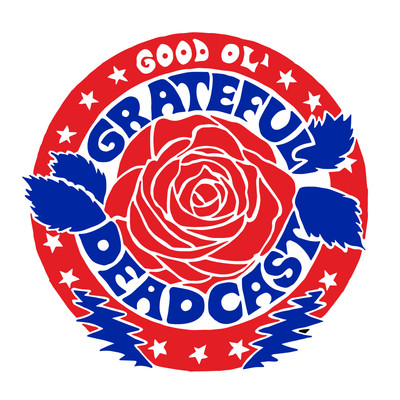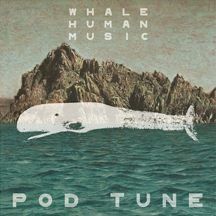
Almost two years into this Substack, and with a manuscript still to be finished, I have been burning less of the shore of late than I would prefer. Fear not: my little hamster hands are busy on a new post about horror and media, but to tide over readers who do not have a paid subscription, I wanted to share a bit from my only post last month: the eleventh edition of the subscribers-only letters column “Ask Dr. D.,” which ran on January 18.
When I started inviting questions for the feature, I was expecting softballs like, What’s the best Philip K. Dick novel, or What’s your favorite ride at Disneyland? or Who makes the tastiest burrito in the Mission? Instead I got questions about the nature of philosophy, or the origins of patriarchy, or my spiritual motivations, or stuff like “What is the deepest question you could possibly ask?” So “Ask Dr. D.” winds up being at least as longish and substantial as my other posts. Since readers seemed to enjoy my recentish Fab Four post “Beatles and Blotters”, I thought I would share my Dr. D. response to a follow-up Beatles question.
— Dr. D.

I just listened to your Rebel Wisdom podcast episode about the Beatles and I am intrigued to hear more of your thoughts about how there’s no “space” for cultural breakthroughs like we had in the ‘60s, that it’s all now narrowcasting. How’d we get into this jam and how do we get out? Or do we just have to wait patiently like Taoist exiles in the mountains for the time to be right again? — Bill
I have two related ideas here about the relationship between culture and “space” (really, space-time) within technologically mediated society. The first I think is pretty uncontroversial. Part of the reason so many of us were attracted to Get Back was not just that it was an amazing film, but that it allowed people today—suffering through the splintered and algorithmically managed multiplex of media flows that shatters our sense of “consensus reality”—to flashback to a time when a single creative and dynamic band could seize the hearts of so many different people around the world. In other words, part of our Beatles “nostalgia”—a complex term, worthy of nuance and qualified respect—is a longing for the ability of a small group of creators to simultaneously make aesthetic breakthroughs and to act as a magnet or glue powerful enough to focus people emotionally and cognitively in a complex but also fractured society.
That glue, and the loss of it, is no joke. Consider TV news, at least in America. There was an enormous range of political positions in America in the middle of the 1960s, from Illuminati-spooked right-wingers to old-school Reds, from civil rights warriors to acid-gobbling corporate Republicans, from racist southern Democrats to East Coast peaceniks, from drop-out bohemians to science-fiction libertarians. But pretty much everyone watched Walter Cronkite, the anchor on CBS Evening News. Or if they didn’t, they felt his presence. He not only reported the news but did so with an aura of decency that could simulate a center which in some important ways didn’t exist. But that’s the point: virtual or not, this living icon still had the effect of orienting sense-making for multiple sectors of society. When he closed the news with the phrase “and that’s the way it is,” you knew that, whatever was actually happening, and even if what was actually happening was not on the news, there was still a way that “it is.”
That’s why the one beef I had with Rob Sheffield’s otherwise wonderful take on Get Back in Rolling Stone was his comment that the only boring thing about the doc were the interviews with ordinary Londoners on the street. I disagree. I think these chats were exceptionally important, and probably recognized as such by Jackson, precisely because they were mostly boring interviews with ordinary people, not just the charming Apple Scruffs, but also older Londoners who just stumbled into liking the Beatles, maybe because their kids brought the records home, or because they stirred the embers of a fading British pride.
So what was unique about the conditions in those years? There is no way around it: the 1960s was an incredibly dynamic and experimental period in arts and culture. But this ferment also boiled up as a “sweet spot” in the globalization of analog electronic media. Marshall McLuhan described the postwar universe of electronic media as an “acoustic space,” by which he meant that it was a space of resonance, of participation, affect, and contagion rather than rational linear thinking associated with the old Gutenberg galaxy. The Beatles were able to resonate far and wide not just because they were pop geniuses, but because the acoustic space was goldilocks perfect in those years. New technologies—like the multi-track studio, FM long-form radio shows, and LSD—created a zone of innovation that magnified and recirculated the mutations in culture. A band like the Beatles was, in effect, able to plunge down its own rabbit hole of pop experimentalism and still come out on Olympus. Because the distribution of all this stuff was still analog media, things moved relatively slowly through relatively few channels into relatively unsaturated minds—but still across the planet. It’s no accident that in 1967 the boys participated in Our World, the first worldwide satellite television broadcast, debuting “All You Need is Love” to an audience of 400 million. Here is the whole broadcast (with the edited appearance of the Beatles, plus George Martin in the recording booth, appearing around 1:17).
The second idea has to do with the difference between subculture and narrowcasting. For all its prosperity, the postwar Western world of the last 75 years has been pretty alienating and terrifying in a lot of ways. One way that folks—and young people in particular, including newly invented “teenagers”—carved out a space for personal passion and human togetherness was through subcultures, modern tribes, and fan culture. By directing your psychic juices through objects of cultural obsession—David Bowie, Star Trek, hot rods—you were able to creatively focus your individual identity while resonating with other niche dwellers. By gathering physically, at least at times, you could form an alternative zone of values and cultural reference—what Trekkers called a “weekend-only world”—that repurposed or “poached” chunks of the culture industry for more intimate, collective, hedonistic, and enchanted ends that were, more or less, “bottom-up” rather than “top down.”

I am thinking here of Mods and Rockers, longboarders, Deadheads, ravers, Pagans, or the early writers of slash fiction—the subgenre of fan fiction that elaborated the homosexual love affairs of nominally straight TV characters, like Kirk and Spock. It’s important not to romanticize these scenes, which could be thuggish and insular and dumb; many of them were more parasitic on the culture industry than their rebel stances acknowledged. But here’s the thing: in a way they were “narrowcasting” themselves, going deeper than the media itself wanted to go into a particular zone or sensibility. And to do that work, subcultures needed free time and unmanaged space to develop organically, both of which were available in the analog margins. While the Grateful Dead were quite conscious of their unique fan base by the early ‘70s, and made decisions to foster and cultivate the heads, the scene mostly developed in its own absurd way for many many years. The Deadhead did not become a widely recognizable identity until the later ‘80s, when the fandom exploded in part because the scene was already dripping with romance, adventure, symbolic richness, and, dare I say, authenticity.
Something happened in the new century, something that involved social media, consumer tracking, urban rents, the triumph of nerd entertainment culture, and our own subjective sense of time and space. Fandom became compressed, more thoroughly manipulated, and more technically organized, even as its deep logic became eviscerated. Today it can feel like being a fan is simply the instantiation of an algorithmic marketing plan—like a sneaky “gotchya” LARP. Major films aimed at a youth market are accompanied by big-money campaigns designed to trigger and coerce fannish desires and intensities, using tricks and tools pulled from social psychology. Yes, inventing fandom was always part of consumer culture, but not to this degree, or with these consequences. Doug Rushkoff made some great documentaries on this, like Generation Like and Merchants of Cool.
So while the Internet has allowed weirdo fans all around the world to get hot and heavy about ever more recherché topics, the frictionless character of the technology collapsed the echoing chambers of McLuhan’s acoustic space—a kind of eviction from resonance. The Internet also sucked libido and magic from the literal physical environments—clubs, coffee houses, snotty record stores—that created the environs for subcultural initiation, adventure, commitment, and risk. Frictionless also means it is hard to stick around, so that fandoms and genres bleed into one another and become less worthy of directed, identity-forming passion. When I taught a course on cultural criticism to undergrad millennials about a decade ago, I was shocked to discover that most of them did not seem to be passionately invested in particular musical preferences, whereas almost everyone I knew in college built their identity around bands and taste. These kids mostly just listened to pop music because, well, there it is.
Humans are terribly creative, and there is lots of great media out there. But the millisecond a fresh trend emerges long enough to be named, it is algorithmically identified, amplified, recirculated—and then more easily abandoned. Just recall the last time you felt a sense of discovery around some odd niche and started to explore: WHAM-O, the bitstreams are in your face with merch, memes, and pushy opportunities to connect and “join the community.” There is no longer time or space for subculture in the old sense. Instead we have narrowcasting.
I totally realize this is grumpy-old-man talk, and you are welcome to dismiss me with an “OK, X’er.” But the stakes are serious. As mentioned, the modern world has been an anxious and alienating place for quite a while, and subcultures provided a kind of neotribal buffer of symbolic collectivity. So when subcultures become ersatz and unsatisfying in the age of narrowcasting, where does one turn for “the tribal”? Maybe you can see where this is going. Could the possibly cataclysmic dynamics of cultural polarization reflect the fact that when more marginalized forms of tribalism collapse, people yearning for intensity and belonging and freedom from the banal turn to Big Angry Frightened Tribes so massive they make their own ontological gravity? The new game is not to escape into a pocket world but to dominate the rest of reality through your narrative. The Mods may have hated the Rockers, but their weapons were smaller, the fighting ground much more localized.
I am not saying that small, creative, and satisfying subcultures don’t or can’t exist now. I am sure they do. I hear about artist collectives or group living arrangements, even among techies, and I feel hopeful. What I am saying is that the subcultures I can see easily, the ones that translate templates based on the old analog scenes into the Internet, have lost something profound in that translation. And if you are wise enough to distrust the sense of belonging provided by the Big Angry Frightened Tribes, where to go?
I think your quip about Taoist sages contains more of the answer than you may suspect. Ideally, the Taoist sage achieved relative freedom by withdrawing from the world and minimizing their needs and retreating to a still bounteous nature. That’s all pretty tough to pull off these days. But here is the thing: they didn’t just do it alone. Taoists also lived in groups, and some even ran medieval Chinese versions of New Age retreat centers. So I like to imagine today’s creative subcultural Taoists are out there somewhere, experimenting with amazing and marvelous and engaged scenes, using new and ancient technologies to re-occupy space and time and community for the glorious fuck-it-all of it. But I don’t know anything about them because they don’t want me to know about them. And that kind of not knowing just makes me smile.
I hope you enjoyed this flicker of Burning Shore. Please consider a paid subscription if you can. Or you can drop a tip in my Tip Jar.
Burning Shore only grows by word of mouth, so please pass this along to someone who might dig it. Thanks!




